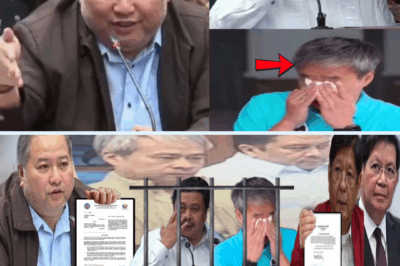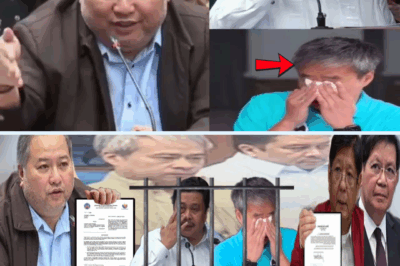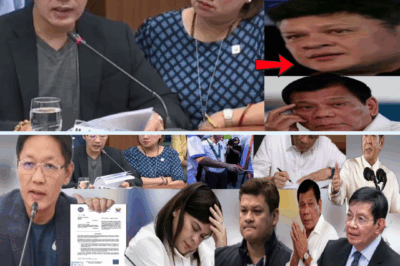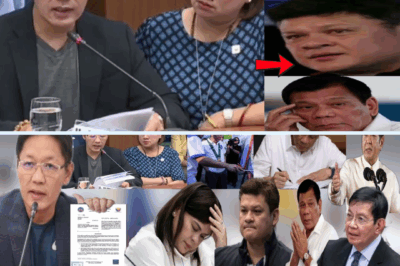“Upuan”: How Gloc-9’s 2009 Rap About Corruption Became Viral Again in 2025
When Aristotle Pollisco—better known as Gloc-9—released Upuan in 2009, the Philippines was a very different place. The internet was still slowly expanding, TikTok had not yet been invented, and the term “woke” had not yet entered mainstream pop culture. But Gloc-9, already known for using rap as a mirror of Filipino society, was writing music that was timeless—because its themes were rooted in the realities of inequality, corruption, and the gap between those in power and the powerless.
Fast forward to 2025, and Upuan has once again taken center stage in the country’s social media feeds. Amid allegations of multibillion-peso “ghost” flood control projects, the rap anthem has resurfaced on Facebook, TikTok, and Instagram. Netizens are using the song to express their frustrations, share their anger, and connect the dots between art and politics. For many, it feels as though Gloc-9 wrote the song yesterday.
.jpeg)
A Protest in Rap Form
Gloc-9 has long been celebrated as the country’s most socially conscious rapper. While many of his peers focused on love songs or party anthems, he chose to tackle poverty (Lando), identity and acceptance (Sirena), and corruption (Upuan). Each song is not merely a track to be enjoyed but a narrative, a protest, and a reminder of the stark realities most Filipinos face.
In Upuan, the central metaphor is deceptively simple: the “seat” (upuan) occupied by powerful people—politicians, businessmen, religious leaders, or bosses—who live lives of privilege while the masses struggle to survive. Through sharp and biting verses, Gloc-9 juxtaposes the lavish lifestyles of those in power with the hunger, poverty, and desperation of ordinary citizens.
The opening line, “Kayo po na nakaupo, subukan n’yo namang tumayo,” is not just a call to action but also a challenge: for those in positions of authority to leave their comfort zones and see, firsthand, the harsh lives of the people they claim to serve.
Lyrics That Cut Deep
The verses of Upuan remain some of the most quoted lines in Filipino rap. They describe images so vivid that listeners cannot help but draw comparisons to their own lives.
He raps about wealthy families living in mansions with wide lawns, tall fences, and luxury cars, while poor families live in patched-up shacks with walls made of rusty metal sheets. He contrasts tables full of ham even outside the Christmas season with families who can barely afford dried fish and salt for dinner. He describes the plight of a mother whose only wealth is a single pot, used only when the father brings home his meager salary.
Perhaps the most stinging lines are when Gloc-9 accuses the powerful of turning a blind eye:
“Kahit sa dami ng pera niyo, walang doktor na makapagpapalinaw ng mata niyo.”
It is a damning statement about willful blindness—the idea that even with immense resources, the powerful refuse to see the suffering around them.
From Nursing Student to Rap Prophet
In a 2020 interview, Gloc-9 revealed that he wrote Upuan while working as a student nurse in a public hospital. Surrounded daily by poverty, sickness, and desperation, he found inspiration to pen the lyrics that would soon resonate with millions.
“When you are in an environment like a public hospital in the Philippines, you will never run out of inspiration,” he explained.
The song’s authenticity stems from these lived experiences. Gloc-9 was not an outsider speaking about issues he barely knew; he was someone who had seen suffering up close, who had worked with ordinary Filipinos struggling to get by.
Why Upuan is Viral Again in 2025
So why has a 16-year-old song suddenly returned to the spotlight?
The immediate trigger is the controversy surrounding alleged multibillion-peso ghost flood control projects. Social media has been flooded with memes, rants, and protest videos, and netizens have turned to Upuan as the soundtrack to their outrage.
For younger generations who may not have been old enough to appreciate the song in 2009, this rediscovery feels both fresh and eerily relevant. For older fans, it is a bitter reminder that not much has changed in over a decade.
The viral nature of Upuan today speaks volumes about the cyclical nature of Philippine politics: scandals repeat themselves, corruption allegations reemerge, and public frustration finds solace in art that has already voiced the people’s pain.
The Role of Music in Filipino Resistance
Filipinos have always turned to music in times of political struggle. From protest songs of the martial law era to folk anthems of social movements, music has long been a weapon of resistance and a tool of empowerment.
Gloc-9, though never directly affiliated with political organizations, has been a consistent cultural voice of dissent. His rap has reached audiences that traditional protest movements sometimes fail to connect with—young people, working-class listeners, and even overseas Filipinos who relate to his depictions of sacrifice and inequality.
By going viral again in 2025, Upuan has reasserted the role of music as a mirror of society. It reminds listeners that art does not merely entertain—it documents history, challenges authority, and provokes thought.
Netizens React
On TikTok, creators pair snippets of Upuan with videos of luxury cars, lavish mansions, or extravagant political rallies, contrasting them with clips of flooding streets, hungry children, and struggling families. On Facebook, posts quoting Gloc-9’s lyrics garner thousands of shares, with comments ranging from anger to admiration.
“Nothing has changed. It’s 2025, and the song still makes sense,” one user wrote.
Another netizen quipped, “Gloc-9 was ahead of his time. He wrote our present in 2009.”
The online buzz has reignited debates not just about corruption but also about accountability, governance, and whether Filipinos are doomed to repeat the same cycle of scandals and disillusionment.
Beyond Politics: Universal Message
While Upuan is often read as a direct critique of politicians, Gloc-9 himself has clarified that the message extends further. He has said that the “seat” could also symbolize a boss in the workplace, a leader in a religious group, or any authority figure who enjoys privilege while remaining blind to the suffering of others.
This universality is part of why the song resonates so strongly. Everyone has encountered a version of the “nakaupo” in their own lives—people who sit comfortably while others bear the weight of hardship.
A Reminder and a Warning
As Upuan trends once more, it serves not only as a protest anthem but also as a reminder of how little has changed. Sixteen years after its release, the Philippines is still grappling with corruption, inequality, and the widening gap between rich and poor.
Yet the song is also a warning. If society continues to ignore these issues, the same frustrations will resurface again and again. The same scandals will dominate headlines, and the same cycle of anger and disappointment will repeat itself.
In that sense, Upuan is not just a song—it is a mirror. And what it shows is uncomfortable: a nation that has not yet fully confronted the injustices Gloc-9 rapped about in 2009.
Conclusion
The resurgence of Upuan in 2025 proves that music, especially when rooted in truth, never loses its power. Gloc-9 may have written the song as a nursing student inspired by his surroundings, but what he created was an anthem that transcends time.
As Filipinos once again share its lyrics online, the message remains clear: those in power must never forget the people they serve. And if they do, there will always be voices—whether in the streets or in a rap song—that will remind them.
In the end, Gloc-9’s Upuan is more than just a rap about corruption. It is a chronicle of a nation’s struggles, a call for empathy, and a reminder that true change begins when those “sitting” finally choose to stand.
News
Alcantara’s shocking testimony shakes Villanueva and Estrada—dark secrets surface, power trembles, and the nation demands the hidden truth.
Breaking News: Villanueva and Estrada Under Fire as Henry Alcantara Testifies In a stunning twist that has sent shockwaves across…
Villanueva and Estrada shaken—Alcantara’s explosive testimony reveals hidden secrets, sparking fear, betrayal, and a nation demanding shocking answers.
Breaking News: Villanueva and Estrada Under Fire as Henry Alcantara Testifies In a stunning twist that has sent shockwaves across…
Villanueva, Estrada cornered—Alcantara’s shocking testimony drops bombshell secrets, power crumbles, and the nation braces for explosive truth.
Breaking News: Villanueva and Estrada Under Fire as Henry Alcantara Testifies In a stunning twist that has sent shockwaves across…
Discaya’s bombshell rocks the Dutertes—secrets explode, power crumbles, and the nation holds its breath for the truth.
Breaking News: Duterte Family Faces Political Firestorm as Discaya Testifies In a political drama that has gripped the Philippines like…
Duterte empire on the brink—Discaya breaks silence, explosive secrets revealed, power shaken, and the nation waits breathlessly.
Breaking News: Duterte Family Faces Political Firestorm as Discaya Testifies In a political drama that has gripped the Philippines like…
Discaya’s shocking testimony ignites firestorm—Duterte dynasty shaken, secrets exposed, and a nation demands answers to chilling allegations.
Breaking News: Duterte Family Faces Political Firestorm as Discaya Testifies In a political drama that has gripped the Philippines like…
End of content
No more pages to load










